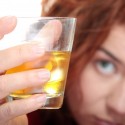How Treatment Centers Help You Overcome Alcohol Withdrawal Syndrome Safely
Once a person’s body becomes accustomed to large amounts of alcohol on a daily basis, the brain and body cannot function normally without alcohol in the system. This condition can develop in matter of weeks in cases of frequent binge drinking or when consuming large quantities on a daily basis.
Under these conditions, cutting back or abstaining from alcohol can bring on alcohol withdrawal effects within six to 12 hours time. Alcohol withdrawal syndrome develops in cases where a person stops drinking altogether.
According to the University of Iowa, alcohol addiction develops out of a pattern of uncontrolled drinking that causes considerable damage to a drinker’s physical and psychological health. Considering the level of physical dependency at work, alcohol withdrawal syndrome can bring on serious aftereffects, especially in cases where a person has other health problems.
For these reasons, most people require professional treatment help to overcome alcohol withdrawal syndrome safely. Alcohol treatment centers specialize in offering the types of physical supports needed to ease a person through the distressing symptoms that arise from alcohol withdrawal syndrome.
Alcohol Withdrawal Syndrome

Treatment centers can monitor your symptoms throughout alcohol withdrawal.
According to the National Institute on Alcohol Abuse & Alcoholism, alcohol exerts an inhibitory or depressant-like effect on the central nervous system. Stopping alcohol use after long periods of excess consumptions causes a rebound effect to take place in the brain. This rebound creates a state of hyper-excitability, known as alcohol withdrawal syndrome.
In effect, brain chemical processes overcompensate for the lack of alcohol in the system, which gives rise to the physical symptoms associated with alcohol withdrawal.
Symptoms most likely to develop include:
- Nausea
- Vomiting
- Tremors
- Profuse sweating
- Increase in body temperature
Treatment for Alcohol Withdrawal
Alcohol withdrawal symptoms can appear in anywhere from 13 to 71 percent of people entering detox treatment with seizure episodes affecting an estimated 15 percent of people during the detox stage.
Depending on the level of the addiction, alcohol withdrawal syndromes are considered minor or major in severity. Standard medication treatments used include benzodiazepine drugs, which produce sedative-type effects. Benzodiazepine drugs commonly used include Librium and Ativan. Sedative drugs directly counteract the brain’s rebound effect during the early stages of detox.
Treatment for Major Withdrawal
Years of alcoholism will inevitably produce severe symptoms as the alcohol withdrawal syndrome unfolds. Major withdrawal, also known as delirium tremens begins around three to five days after a person stops drinking.
People affected by major withdrawal will display the following symptoms:
- Elevated blood pressure
- Mental confusion
- Visual and auditory hallucinations
- Extreme agitated behavior
At this level of alcohol consumption, most people develop medical conditions as a result of long-term alcohol abuse. Nutritional deficiencies are also present.
Considering the severity of symptoms associated with major withdrawal, treatment typically requires benzodiazepines administered in injection form. Anti-psychotic medications are also given to provide relief from psychotic-type symptom, such as hallucinations and extreme agitation.
Alcohol withdrawal syndrome can place a person in considerable distress and be life threatening in cases of major withdrawal. Alcohol treatment centers offer the safest route when long-term alcohol disorders are at work.
